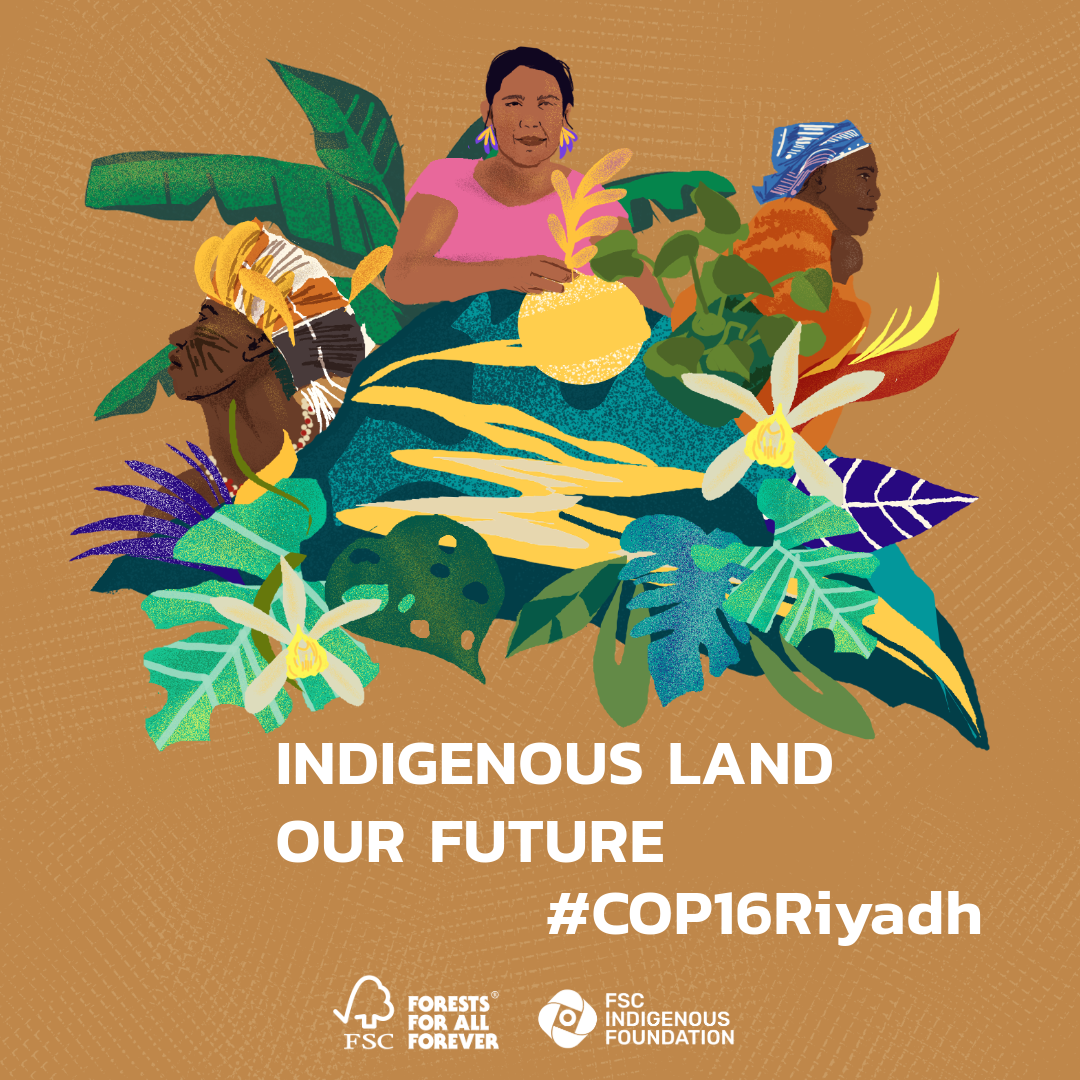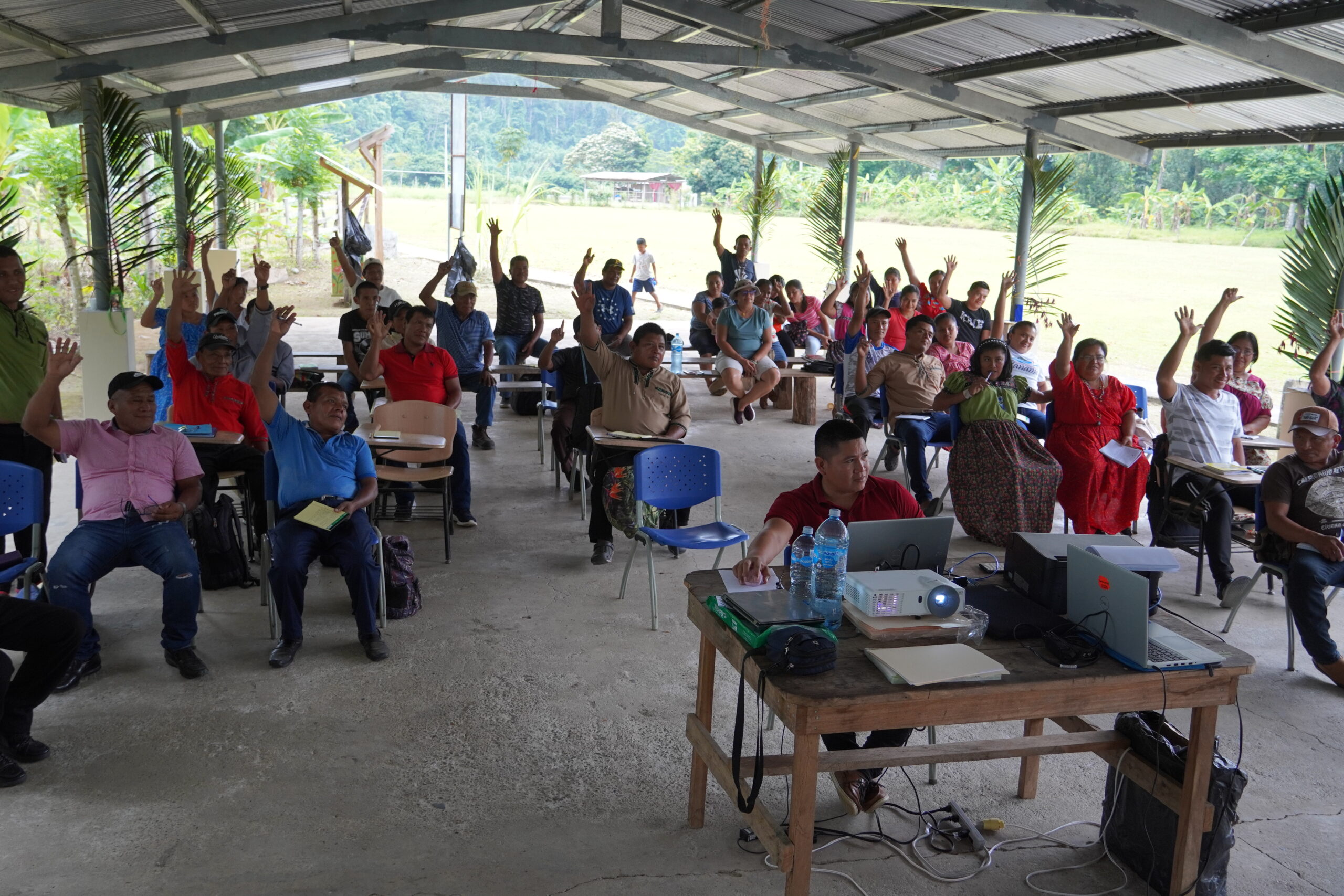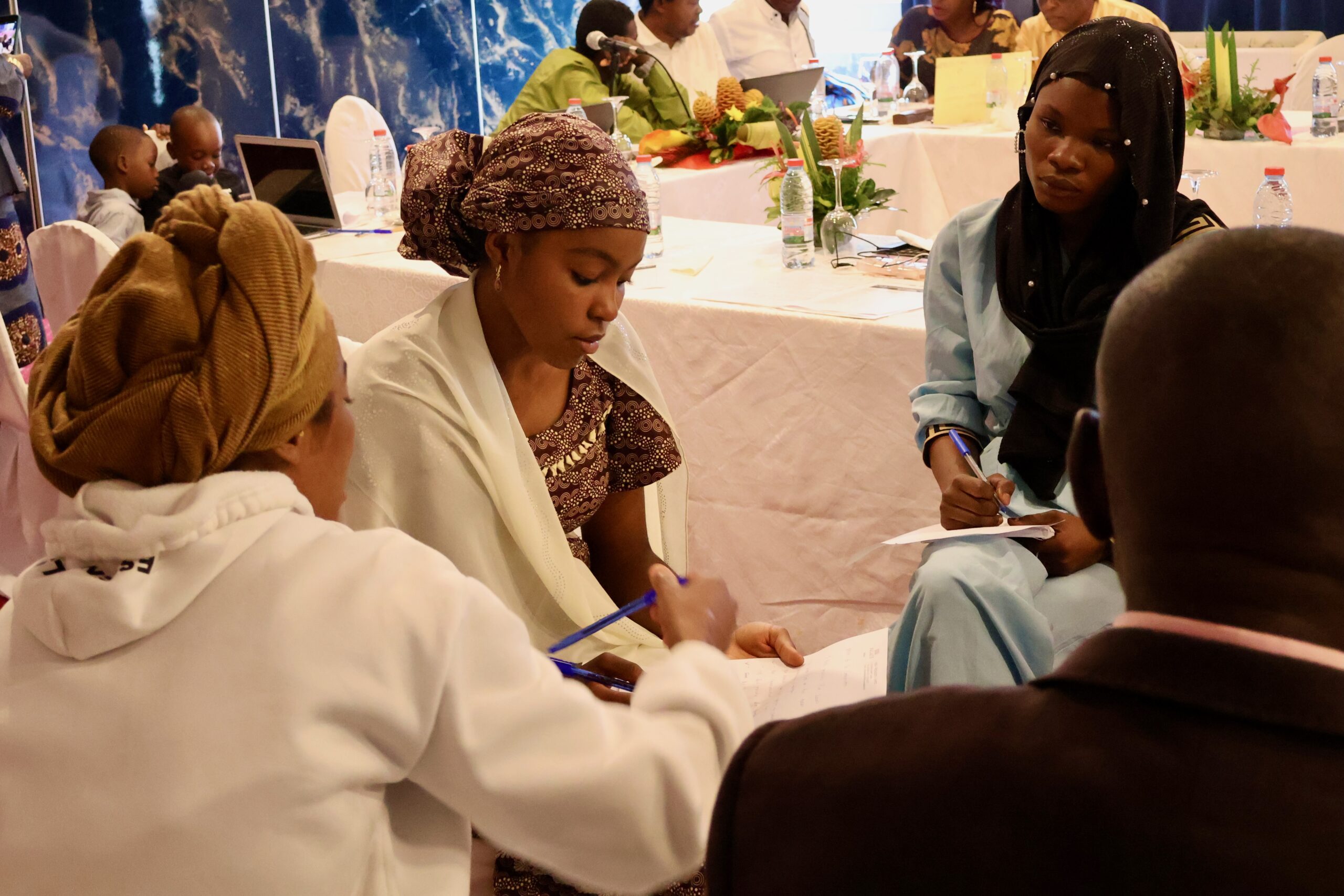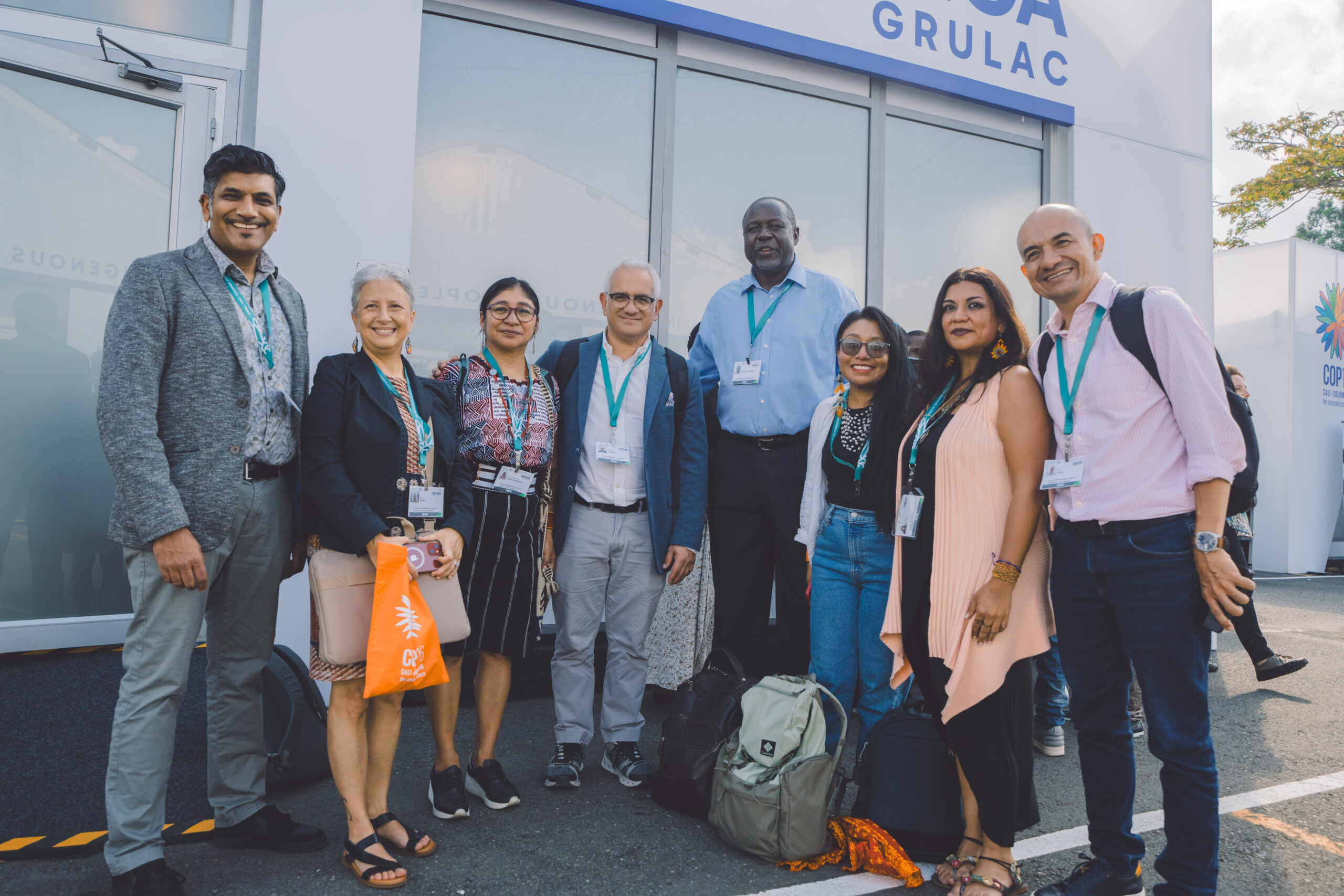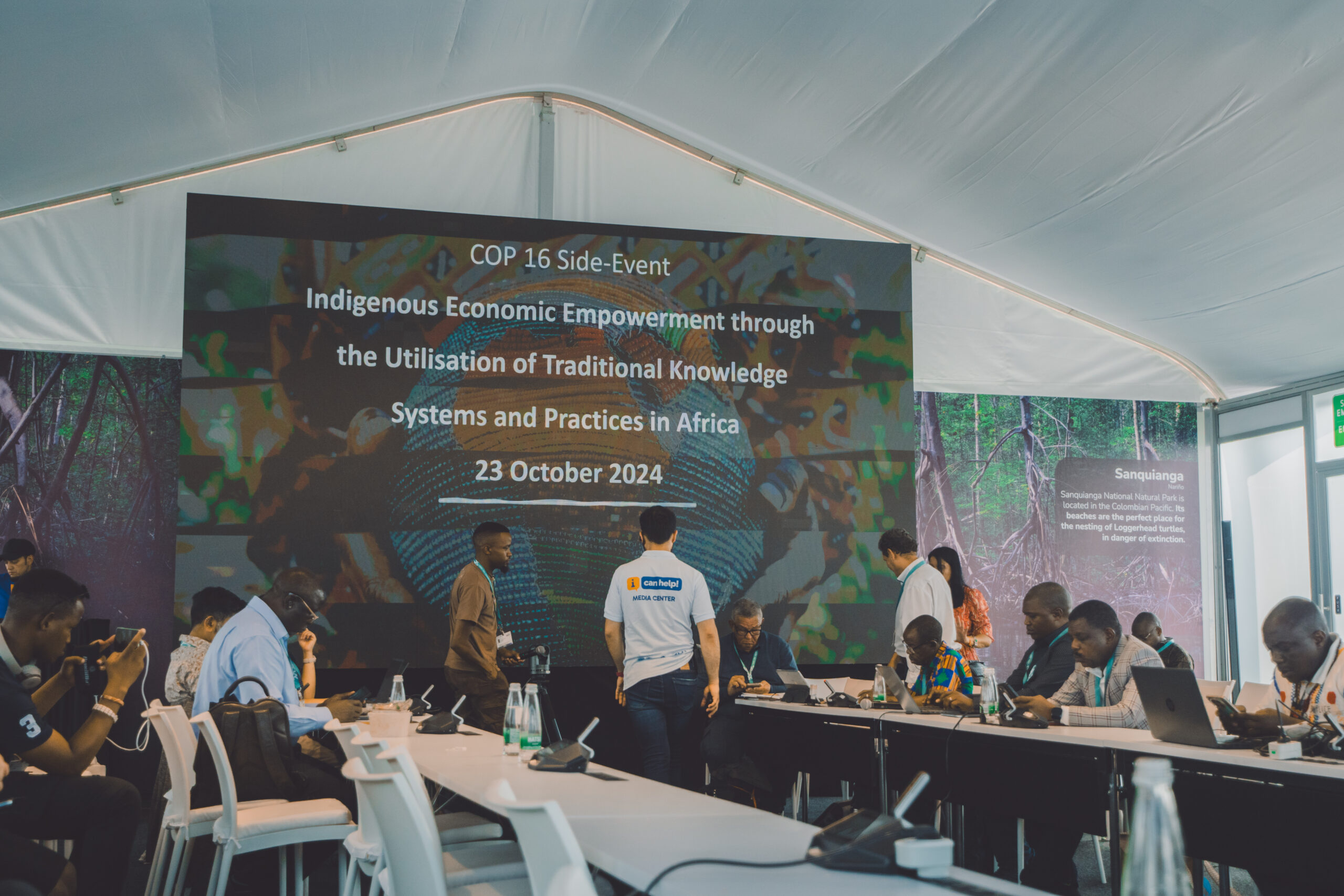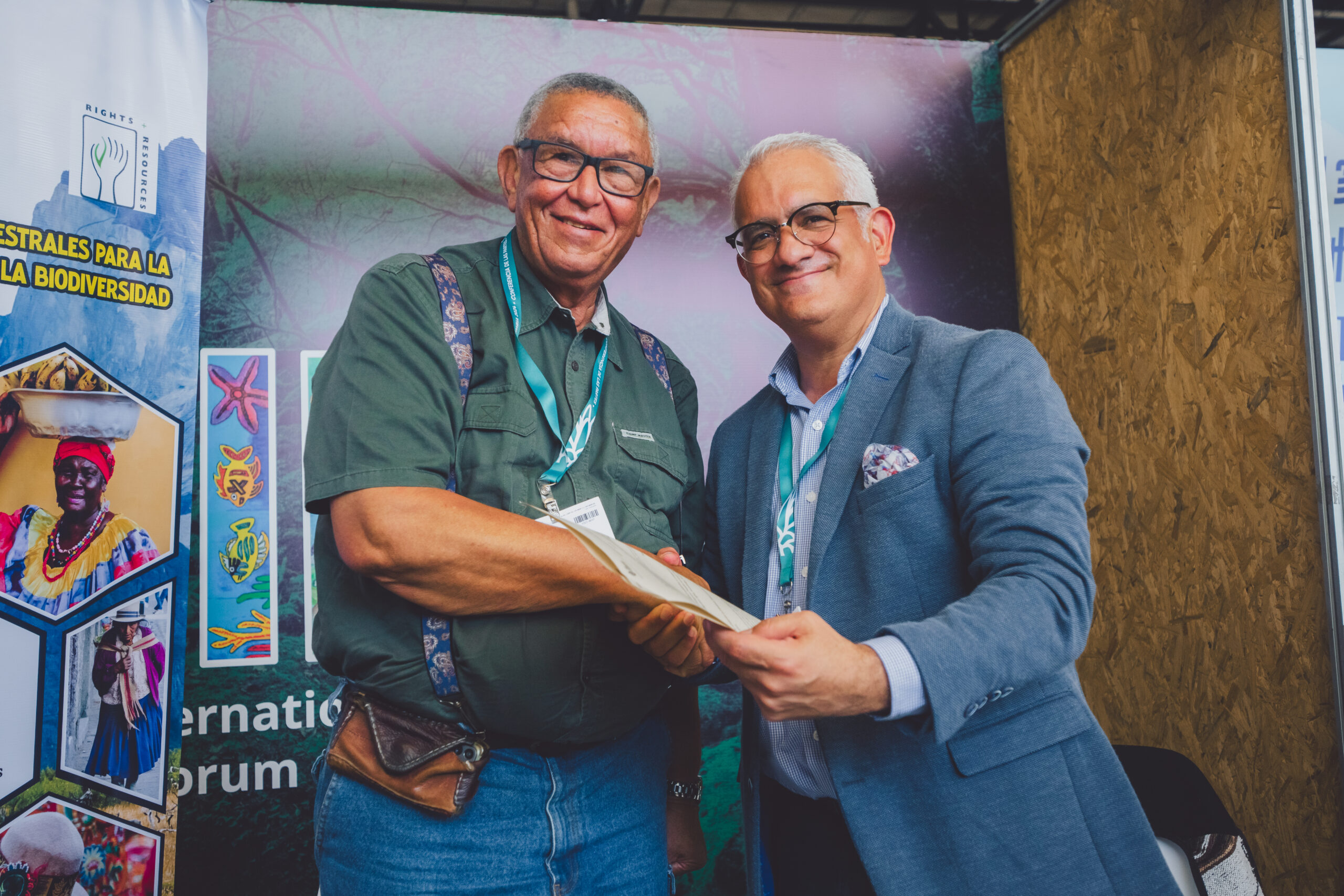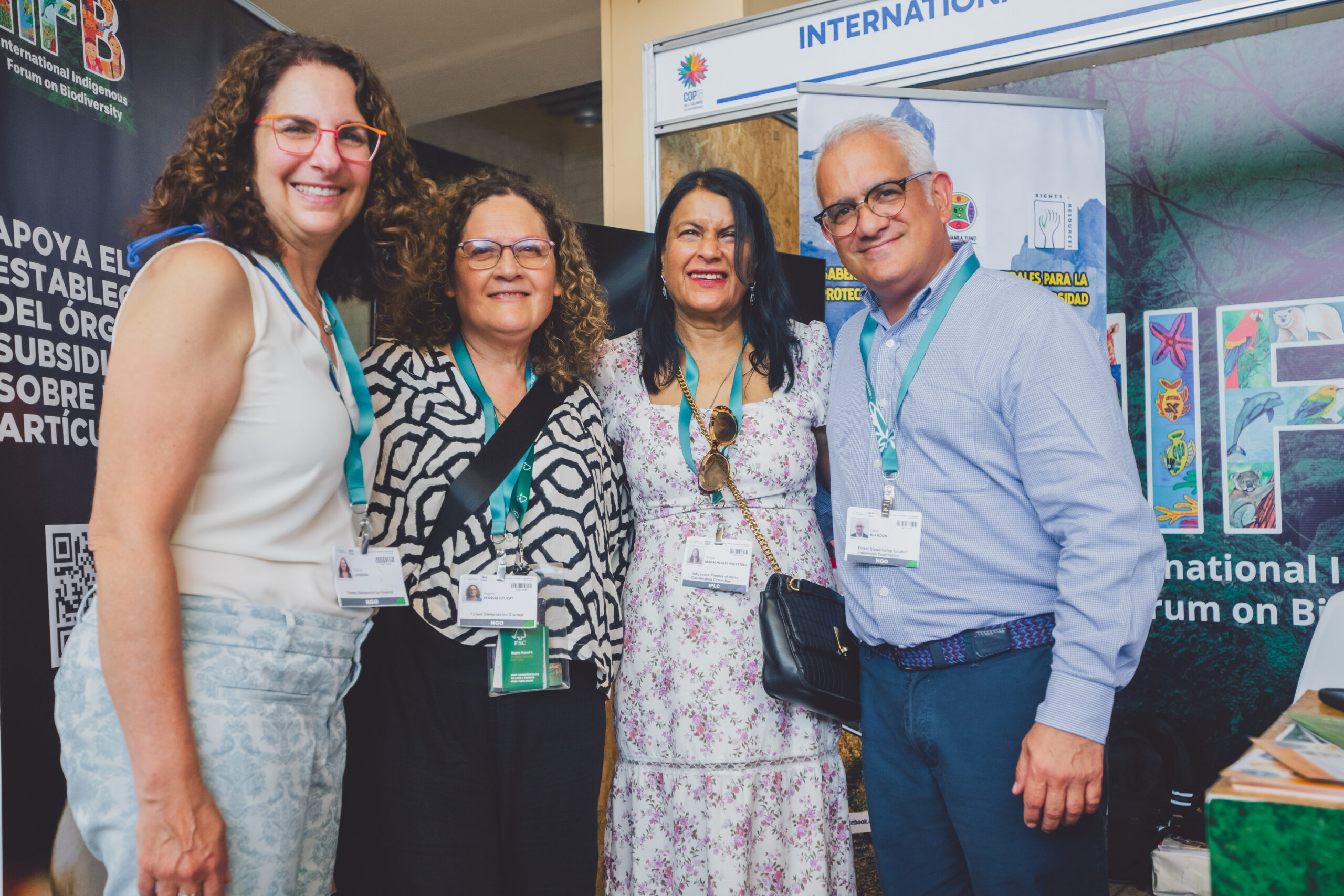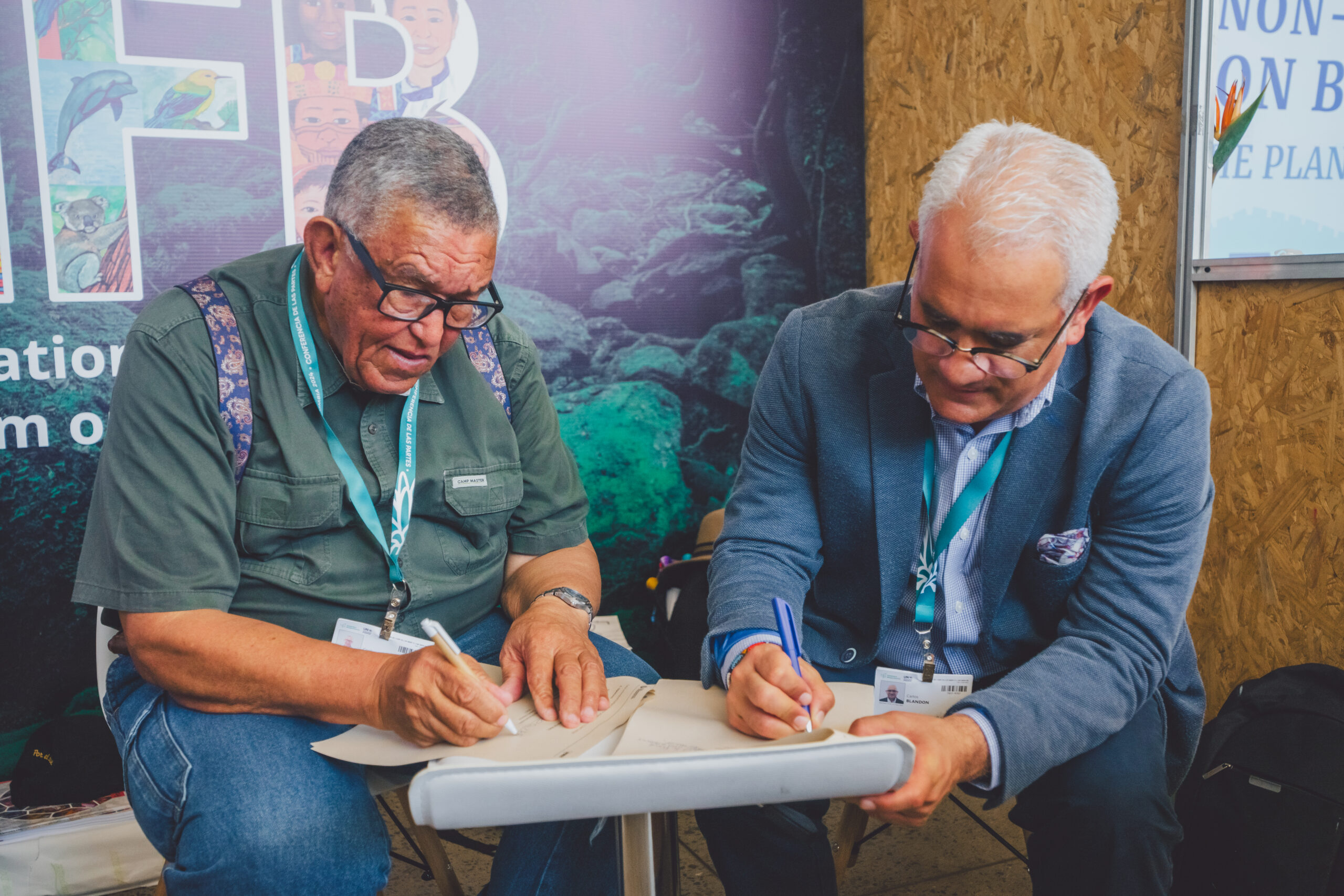Highlighting Indigenous voices at COP29
FSC Indigenous Foundation leads dialogue at COP29 in Baku, Azerbaijan
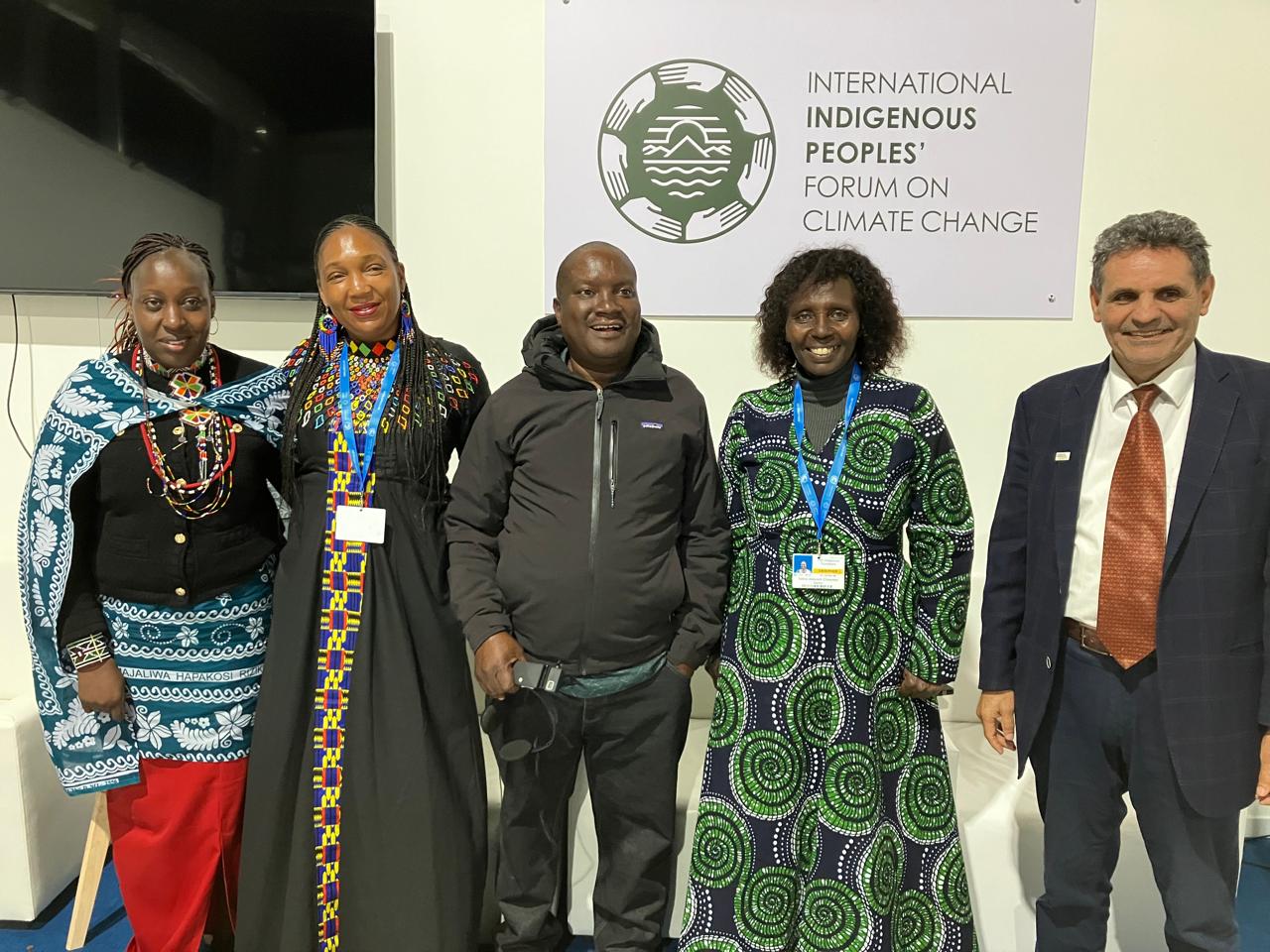
The 29th Conference of the Parties (COP29) of the United Nations Framework Convention on Climate Change (UNFCCC), hosted in Azerbaijan in Baku from November 11-22, 2024, brought significant focus on the inclusion and integration of Indigenous knowledge into climate strategies. With the theme In Solidarity for a Green World, COP29 underscored the need for a transparent and collaborative approach to achieving climate goals.
Integrating Indigenous leadership: The Baku Workplan
At COP29, the adoption of the Baku Workplan. marked a significant advancement in elevating the voices of Indigenous Peoples and local communities in climate action. The Workplan, developed through consensus, outlines key actions to promote knowledge exchange, build capacity, and integrate diverse values and knowledge systems into climate policies. It includes strategies such as regional engagement, collaboration with UNFCCC bodies, and creating roundtables for cross-generational dialogue. Additionally, by renewing the mandate of the Facilitative Working Group (FWG) of the Local Communities and Indigenous Peoples Platform (LCIPP), COP29 also addressed barriers such as language accessibility and continuity in membership transitions, creating a pathway for inclusive and sustainable climate action.
Highlighting Indigenous contributions and challenges
One key moment of the conference was the side event titled “Empowering Indigenous Peoples: Driving Participation in Nationally Determined Contributions (NDCs) for Climate Action,” held at the Indigenous Peoples Pavilion on November 13.
The panel, led by key figures from the FSC Indigenous Foundation (FSC-IF), IPACC, and REPALEAC, explored the pressing need for recognizing and including Indigenous Peoples (IPs) in the climate action process, specifically through NDCs. Speakers included Salina Sanou (FSC-IF), Kanyinke Sena (IPACC), Balkisou Buba (REPALEAC), Samante Anne (FSC Permanent Indigenous Peoples Committee), and Mohamed Handaine (IPACC North Africa), who shared valuable insights on the challenges and opportunities.
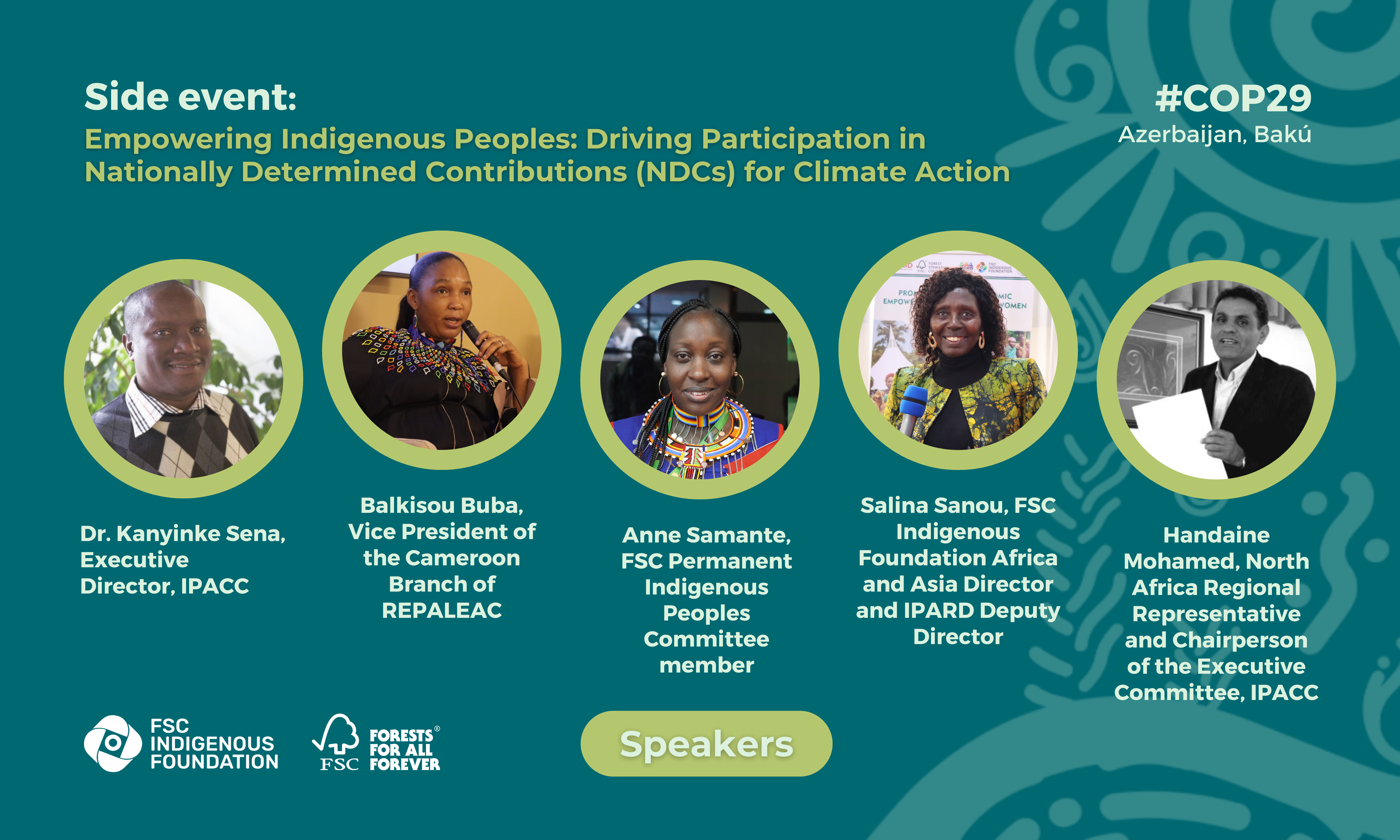
Salina Sanou noted that a recent study of NDCs across eight countries in Africa revealed that “Indigenous Peoples are not recognized in NDCs, which highlights a major gap in inclusive climate frameworks.” This oversight undermines the effectiveness of climate strategies and prevents the incorporation of Indigenous Peoples’ unique knowledge systems.
Samante Anne added, “NDCs are typically government-driven. This presents a challenge, especially when the process is rushed and external consultants, who do not understand the African context, are hired to lead it. This exclusion persists despite the $1.2 billion that was allocated for climate mitigation in tropical forests at COP26.”
Kanyinke Sena pointed out that “only 22% of global NDCs mention Indigenous Peoples.” He emphasized the additional challenge that few African countries, such as Mauritania, South Sudan, Eritrea, Eswatini, and Namibia, incorporate Indigenous Peoples and traditional knowledge into their NDCs. He also shared that NDCs are categorized by country and often fail to integrate the cross-border perspectives of Indigenous Peoples. “Citizens need to read their NDCs to understand the gaps and advocate for inclusion,” he stressed.
The case for Indigenous knowledge and representation
Balkisou Buba highlighted that the lives of many Indigenous communities, including hers, are closely tied to livestock and traditional land practices, underscoring the need for NDCs that value and integrate Indigenous knowledge. She advocated for meaningful inclusion of Indigenous Peoples in decision-making, moving beyond symbolic “tick-box” roles.
“As a way forward, there is the need to empower Indigenous Peoples to be part of meaningful consultations towards the NDCs development. Indigenous Peoples should not be flowers in the discussion but assets,” she said.
Mohamed Handaine added that cutting Indigenous languages equates to severing the roots of Indigenous knowledge, emphasizing the need for adaptation policies that are language-inclusive.
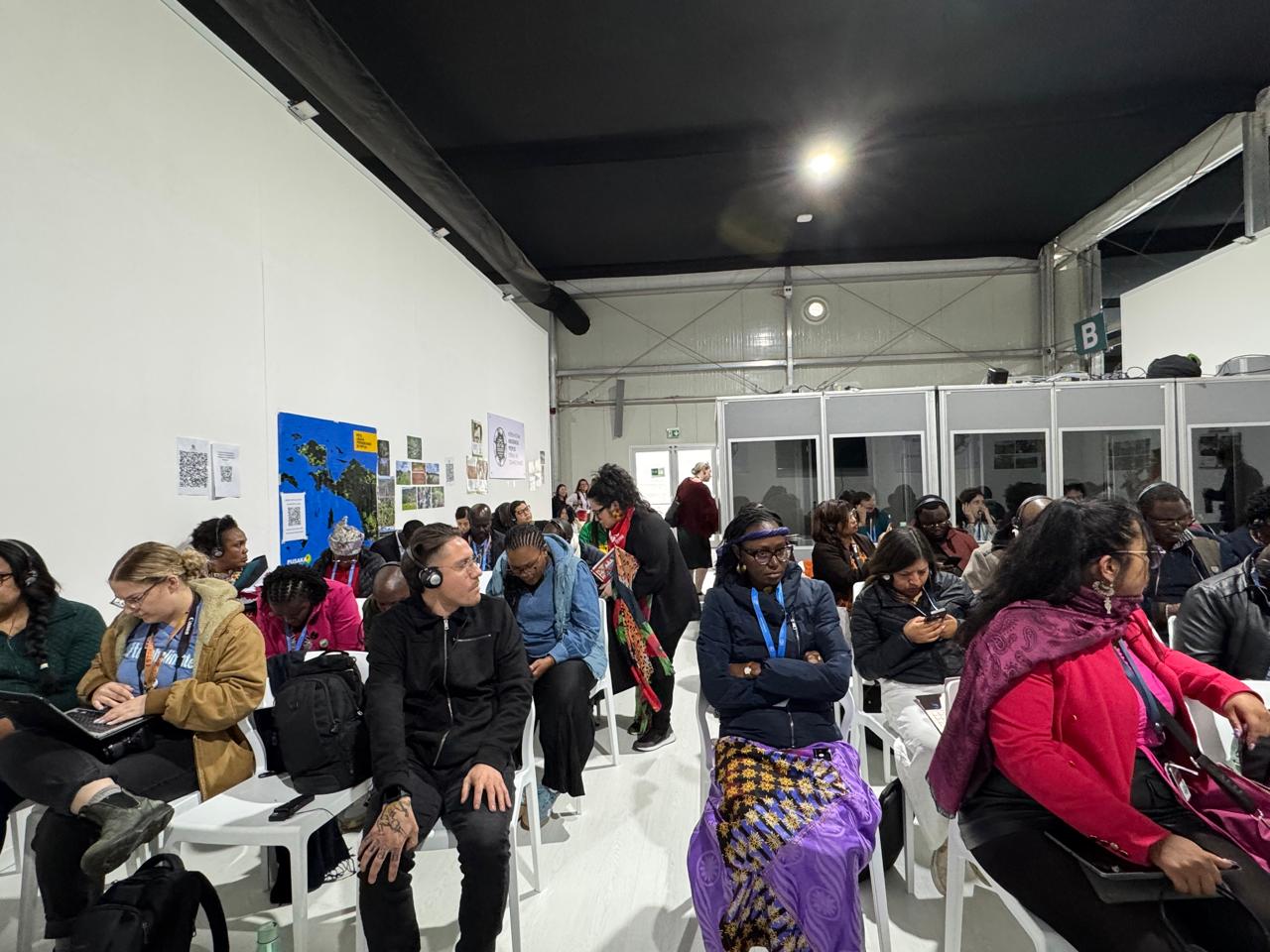
A Path Forward: Actions and Recommendations
The event concluded with powerful calls to action:
- Ensure Indigenous participation: Balkisou Buba and Samante Anne stressed the need to ensure that Indigenous Peoples are involved in every stage of Nationally Determined Contributions (NDC) consultations. Their participation is crucial for meaningful contributions to climate policy development.
- Strengthen local and regional representation: Kanyinke Sena advocated for increasing Indigenous representation at regional forums such as SADC, ECOWAS, and the African Union, emphasizing the need for broader engagement in various sectors
- Secure funding and capacity building: The speakers highlighted that African countries can fund only a small portion of their NDCs and must rely on external support. Kanyinke urged African nations to focus on research and fundraising for Indigenous-led climate initiatives.
- Acknowledge rights holders: The panel emphasized that Indigenous Peoples should be recognized as rights holders rather than stakeholders. Samante Anne underlined the importance of ongoing dialogue to promote traditional knowledge and responsible business practices in NDCs.
Other highlights: financial commitments at COP29
COP29 in Baku marked significant progress in addressing the financial challenges of climate action, setting a long-term financial target of mobilizing $1.3 trillion annually by 2035. This includes a foundational $300 billion annually to support vulnerable nations in enhancing resilience, expanding energy access, and fostering sustainable development. However, \ reliance on mixed public-private funding and voluntary contributions from developing nations has drawn criticism. The “Baku to Belém Roadmap to 1.3T,” led by the COP Presidencies, will guide progress toward these ambitious financial goals.
Indigenous leaders call attention to climate change impacts and solutions at COP29
At COP29, Indigenous leaders from around the world shared harrowing accounts of climate change’s devastating effects on their communities, from catastrophic floods to rising seas. Yet, amid these challenges, they also brought solutions, showcasing their traditional ecological knowledge and vital role in combating global warming. Their voices underscore the urgent need for inclusive climate policies that address the disproportionate impacts they face while leveraging their centuries-old practices for sustainable land management and resilience.
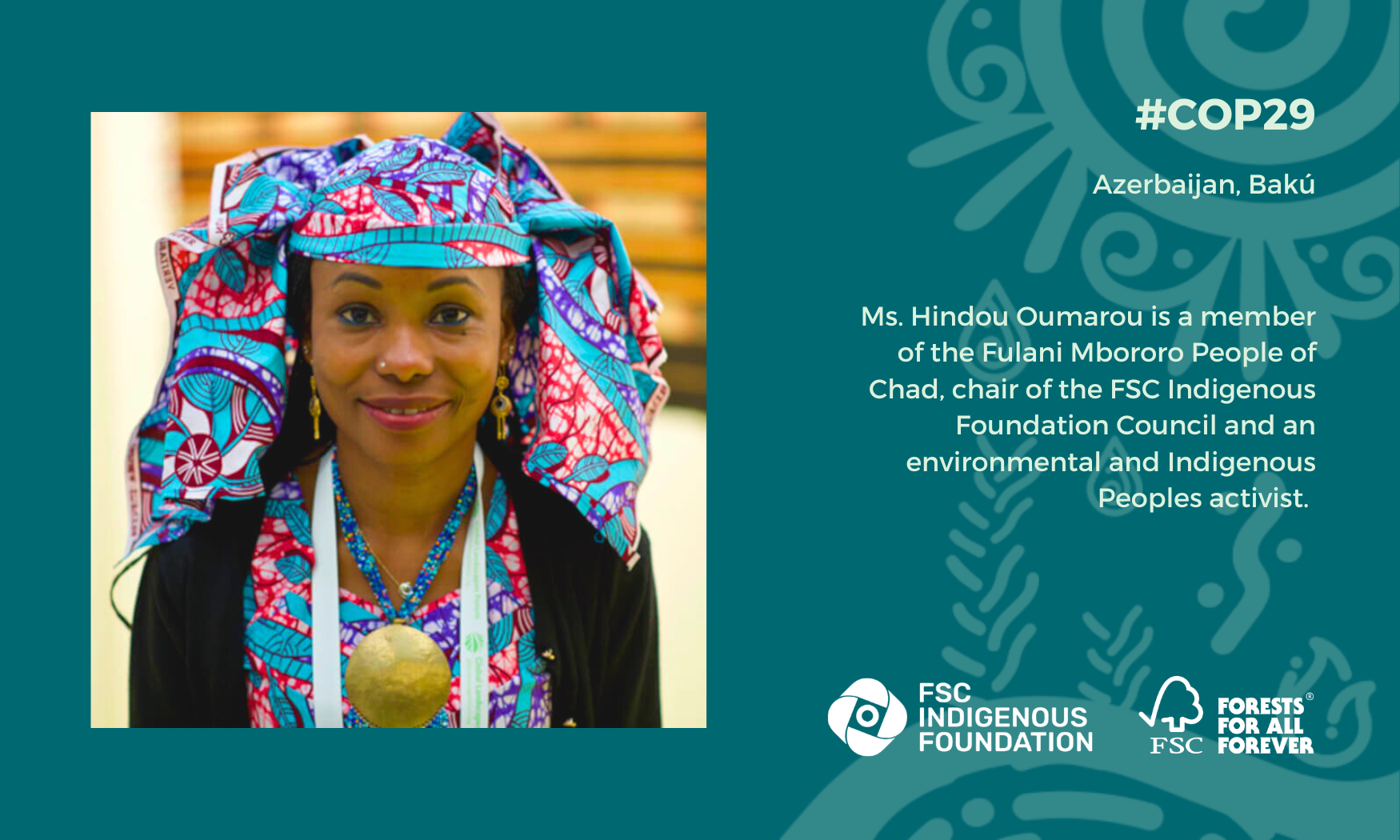
During COP29, Ms. Hindou Oumarou, a member of the Fulani Mbororo People of Chad, Chair of the FSC Indigenous Foundation Council, and an environmental and Indigenous Peoples activist, highlighted the devastating impact of climate change on her community.
“Right now, we are experiencing the biggest floods we have ever had. Two million people have been displaced, and thousands are dead,” she shared, underscoring the urgency of the climate crisis. Her testimony echoes the experiences of many Indigenous communities worldwide, who bear the brunt of extreme weather events while playing a crucial role in climate resilience and land stewardship.
Conclusion
COP29 highlighted the urgent need to integrate Indigenous knowledge into climate action. Recommendations such as establishing localized climate funds, adapting policies to Indigenous needs, and strengthening collaboration with Indigenous communities mark important steps toward a more inclusive future.
The progress made at COP29 sets the stage for further action. By continuing to elevate Indigenous perspectives, we can shape a greener, more resilient future for all.

